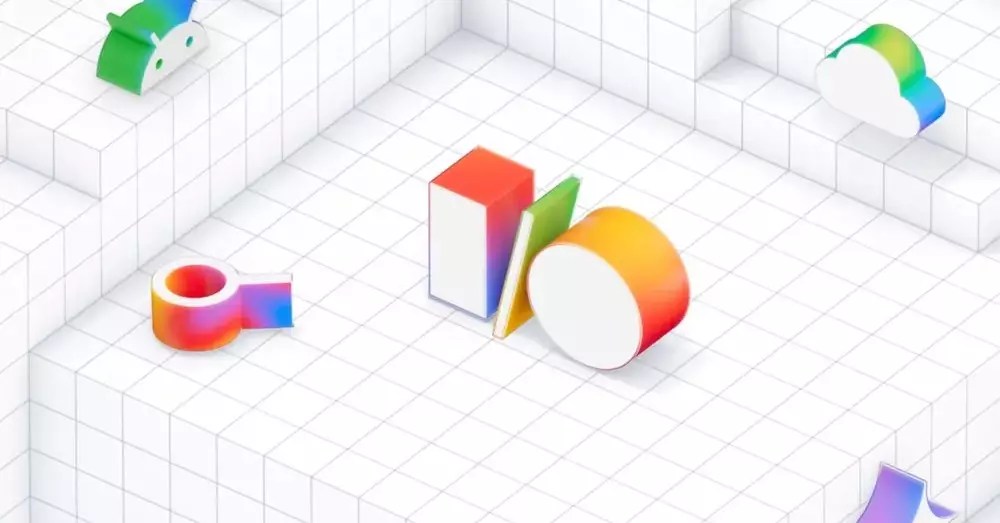As anticipation builds for Google’s annual I/O developer conference, a particular theme has emerged that promises to dominate the conversations and innovations unveiled: Artificial Intelligence (AI) and Extended Reality (XR). While previous conferences have often showcased a plethora of hardware releases and major updates to Android, the 2023 edition seems poised to steer the spotlight firmly onto AI advancements and the evolving landscape of XR technologies.
The keynote, scheduled for May 20th at 10 AM PT, is projected to be groundbreaking. As the tech world eagerly follows suit, this year’s announcement is set against the backdrop of fierce competition among tech giants such as OpenAI, Microsoft, and Meta. For Google, this moment is crucial not only for brand positioning but also for securing its influence in a rapidly changing technological milieu. The I/O event will be live-streamed across various platforms, ensuring that tech enthusiasts worldwide can partake in this significant moment in time.
The AI Race Heats Up
What makes this year particularly fascinating is the pivotal role that AI is projected to play during the keynote. Following years of development under the banner of Gemini—Google’s cutting-edge AI framework—there is substantial expectation for exciting new features that will enhance user interactions across multiple devices. Last week, Google preemptively dialed down expectations for major Android announcements, leading many to speculate that the true focus would be on the triumphant unveiling of Gemini’s latest innovations.
In recent years, AI has transitioned from theoretical discussions in tech circles to practical applications that influence our everyday lives. Given this evolving landscape, Google’s intent to highlight AI during I/O is a strategic maneuver to reaffirm its commitment to leading this transformative movement. The excitement surrounding potential updates, alongside projections of ambitious projects like Project Astra, suggests that the company is unafraid to venture into ambitious territory, modeling what the future of AI could look like.
Extended Reality: The Next Dimension
Yet, AI is not the sole player on this tech stage. Google has also emphasized its commitment to exploring XR technology—an area that blends physical and digital experiences. With the rising popularity of smart glasses and immersive digital worlds, Google is set to provide updates on its Extended Reality Operating System (XR OS). Recent developments have hinted at the integration of Gemini with XR, showcasing a desire to merge AI-enhanced capabilities into immersive experiences.
The introduction of this integration was subtly noted during a previous Android Show, where Google hinted at significant enhancements to the experience on its prototype smart glasses. As competitors such as Samsung gear up for their own XR initiatives, this could be a pivotal moment for Google to make its mark before the broader market kicks in with its advancements.
Moreover, the swift pace of technological development within the realm of XR presents a unique challenge and opportunity for Google. A missed opportunity to provide relevant, captivating updates during I/O could yield far-reaching repercussions, especially if competitors manage to steal the spotlight with innovative announcements of their own.
Shifting Paradigms: Hardware vs. Software Focus
Historically, the I/O conference offered a stage for new hardware launches, including devices such as Pixel phones and various smart home technologies. However, there’s a palpable shift in this paradigm. This year’s focus appears to downplay the unveiling of new hardware, instead channeling energy toward AI and software updates that redefine user experiences. This pivot suggests that Google acknowledges the current market’s desire for software-enhanced functionalities above traditional hardware launches.
As such, while there may be minimal buzz about new smartphones or wearables, the spotlight on AI-powered software solutions opens unprecedented doors for innovation. This trend marks a departure from years of product-centric showcases, indicating a potential prioritization of user engagement and experience through software enhancements.
Google I/O 2023 stands as a testament to the revolution that AI and XR are poised to enact on our technological landscape. As Google readies itself to unveil its innovations, all eyes will closely monitor how these advancements will reshape our digital experiences and redefine the future of technology.


Leave a Reply